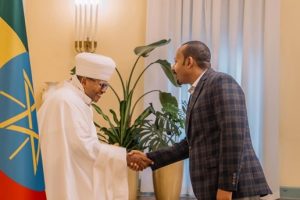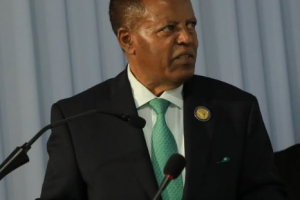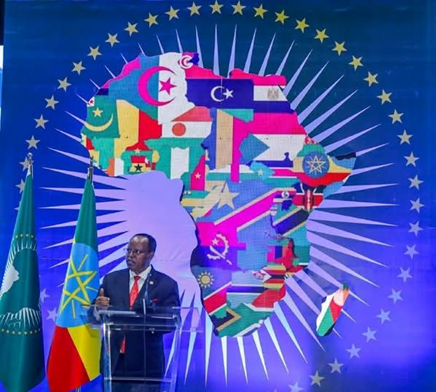
In light of the ever-shifting global geopolitics and geo-economics, African countries need to continue to make significant strides on matters that impact the peace, stability and unity of Africa more than ever before.
With the weakening of multilateralism and the departure from the long held practice of collective development and collective security, the path ahead will remain delicate and demands a genuine partnership and a sense of esprit de corps. Given the ever shifting global geopolitical and geo-economics, we shall continue to make a significant stride on matters that impact the peace, stability and unity of Africa more than ever before.
Ethiopia will continue to fulfill its share towards realizing peaceful, stable and self-reliant Africa.
FDRE President TayeAtske-Selassie said during a dinner hosted by MoFAin honor of AU member states Ministers of Foreign Affairs
Africa’s future depends on collective action amid rising wave of changes: FM Gedion
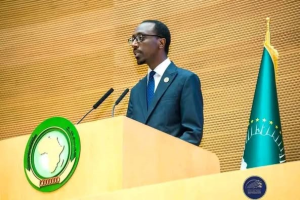
Multilateralism is not just a choice but a necessity for Africa and the Global South, as most challenges require collaborative solutions. African states should strengthen unity and solidarity as the continent’s future depends on collective action to address global wave of challenges and seize emerging opportunities.
African nations to stand united in the face of rising global turbulence, including climate change, geopolitical rivalries, and technological disruptions.
Advances in technology, such as artificial intelligence are also giving raise to threats and opportunities that would have been considered science fiction just a few years ago. In these times, African unity, cooperation and solidarity are of the utmost importance. The coming wave of change could either lift us all to a better position or through us into the unknown.
GedionTimothewos (PhD), Foreign Affairs Minister of Ethiopia,said during the opening ceremony of the 46th Ordinary Session of the African Union Executive Council
Solidarity, collective actions key to overcome continental challenges: MoussaFaki
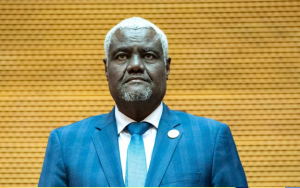
African Union institutional reform shows significant progress and AU strengthens its international partnerships, enhancing the continent’s international credibility and visibility. Similarly, Africa registers promising advancements in agricultural development, tackling climate change, developing blue economy, energy, infrastructure, health and education sectors
Despite these achievements, Africa is still continued to face political, economic and diplomatic adversities, which needs collective action of the member states. The continent also is facing violent conflicts in Sudan and the eastern Democratic Republic of the Congo.
AU is facing ongoing difficulties and African solidarity and Pan-Africanism is weakening. Hence, collective action is urgent for the continent especially to address the recent global challenges that needs Africa to unite and confront its issues head-on.
MoussaFakiMahamat, outgoing Commissioner of the African Union Commission opening remarkatthe 46th Ordinary Session of the Executive Councilof the AU
Global financial architecture reform crucial to address structural barriers: ECA Chief
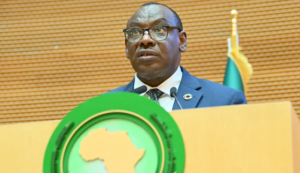
The transatlantic slave trade and colonial exploitation robbed Africa of its people, resources and dignity, and left behind inequalities that persist in global financial systems, trade structures and governance institutions, till this day.
The extraction of Africa’s resources without corresponding development and the systemic barriers to trade and investment are, indeed, contemporary manifestations of these historical injustices. Africa’s current global financial standing reveals the stark inequalities it faces.
Despite Africa possesses 30 percent of the world’s mineral reserves and contains 65 percent of the world’s arable land, Africa accounts for less than 3 percent of global trade and only 1 percent of global manufacturing output.
These disparities are not due to a lack of economic potential but to entrenched structural barriers that keep Africa in a cycle of economic dependency. Hence, global financial institutions need urgent reform to solve these structural barriers.
Claver Gatete,The Executive Secretary of the United Nations Economic Commission for Africa (ECA) at the opening session of the 46th AU
Ethiopia committed in fostering peace and stability in Africa: MoFA Spokesperson
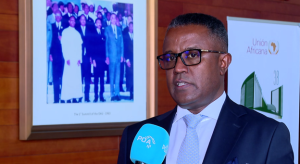
Ethiopia was elected as a member of the African Union Peace and Security Council during the election held at the 46th Ordinary Session of the Executive Council of the African Union, which commenced today in Addis Ababa.
As member of the African Union Peace and Security Council (PSC), Ethiopia is poised to further enhance its dedication to fostering peace and stability across the continent, which is at the heart of Ethiopia’s firm stance.
The significance of Ethiopia’s membership in the Peace and Security Council comes from the fact that it has always been the major advocator of peace and security issues not only in the continent, but also since the inception of the multilateral organs like the League of Nations and United Nations.
Ethiopia has always pushed for the concept of collective security.Ethiopia participates in major peacekeeping operations carried out both under the UN and African Union.
Ambassador NebiatGetachew, Spokesperson of Ministry of Foreign Affairs of Ethiopia


